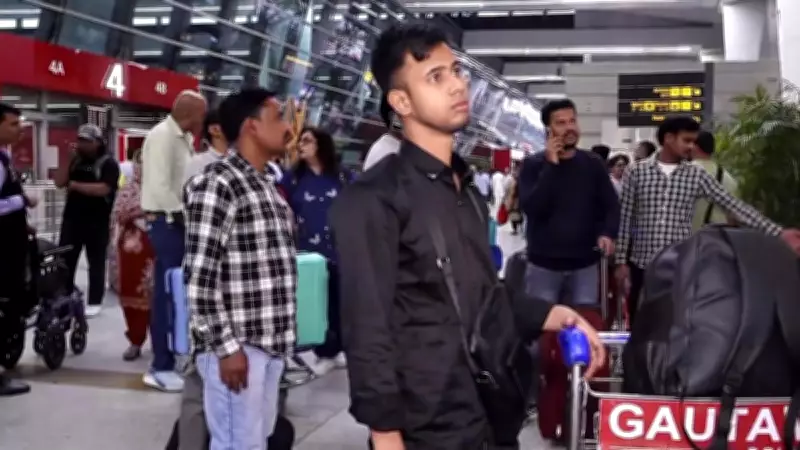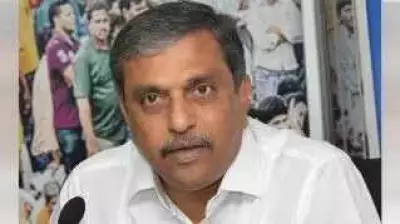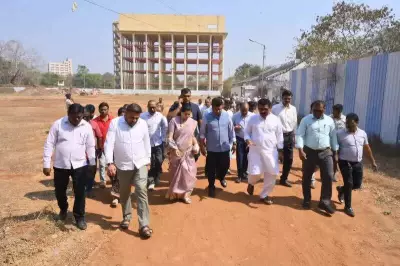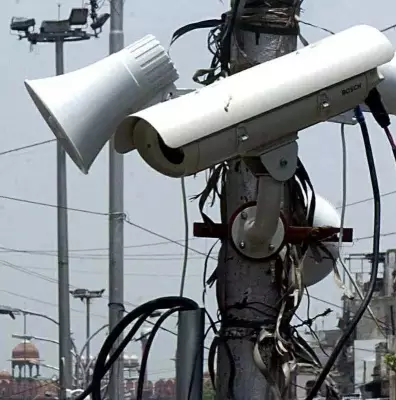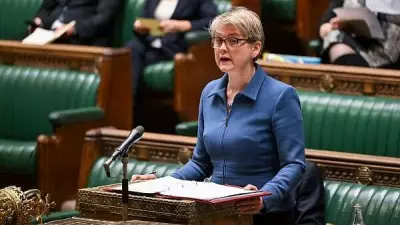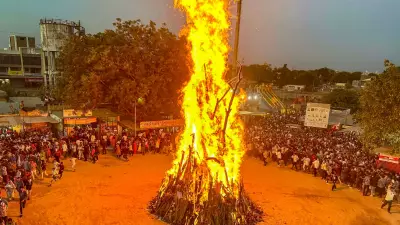Politics
Mumbai Police Bust Flat-Grabbing Racket Using Forged BMC Documents in Mankhurd
Trombay police arrested two women for illegally occupying police quarters in Mankhurd using forged BMC allotment letters. The racket involved a mastermind who posed as a BMC employee and charged Rs 5 lakh for fake government flats.
World
UK Government Prepares Evacuation Plans for Citizens in Gulf Amid Rising Tensions
The UK government is developing plans to assist British citizens in leaving Gulf nations, with over 100,000 people registering their presence since recent attacks began.
Business
Middle East Conflict Threatens India's Oil Supply, Inflation and Economy
Escalating Middle East tensions disrupt global oil supplies, pushing crude prices higher and threatening India's economy with inflation and wider deficits.
Entertainment
Sharat Katariya's New OTT Drama Pairs Raveena Tandon with Kapil Sharma
Filmmaker Sharat Katariya begins production on a slice-of-life OTT drama featuring Raveena Tandon and Kapil Sharma as leads, focusing on human connections and daily life goals with a grounded, realistic approach.
Sports
Lifestyle
Technology
Altman: OpenAI's Pentagon Deal Won Over Anthropic on Contract Terms
OpenAI CEO Sam Altman suggests Anthropic's demand for tighter operational control and specific prohibitions led to Pentagon deal collapse, while OpenAI favored technical safeguards.
Skills Trump Job Titles in AI Hiring Revolution: LinkedIn
LinkedIn's Skills on the Rise 2026 report reveals employers prioritize skills over job titles, with AI and human capabilities leading the shift. Learn how professionals can adapt.
Honor Robot Phone: Dancing Camera, AI Tracking for 2026
Honor unveils its Robot Phone with a pop-up robotic camera that nods, dances, and tracks subjects using AI. Set for a 2026 launch, it features a 200MP camera on a micro gimbal and ARRI color science.
Total Lunar Eclipse March 2026: India Visibility Details
A total lunar eclipse will occur on March 3, 2026, visible across India with regional variations. The India Meteorological Department provides timing and magnitude details for this celestial event.
YouTube Tests AI Remix Feature for Short Video Creation
YouTube is testing a new AI-powered 'Remix' feature that allows users to create short videos by adding objects and reimagining content, enhancing creative tools for creators.
Health
Get Updates
Subscribe to our newsletter to receive the latest updates in your inbox!
We hate spammers and never send spam




